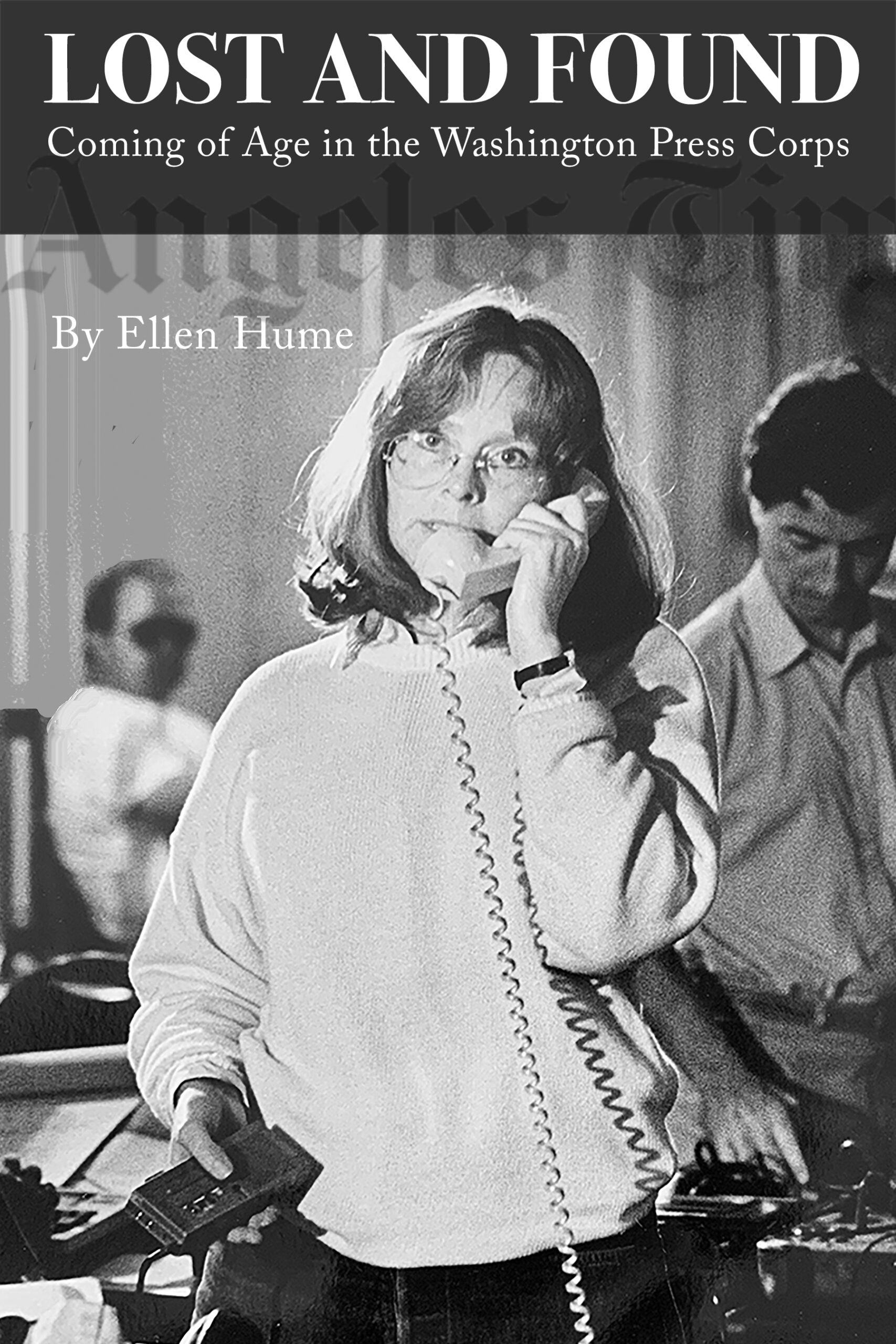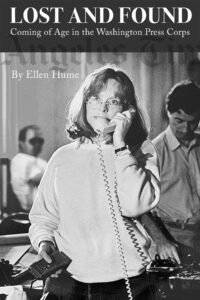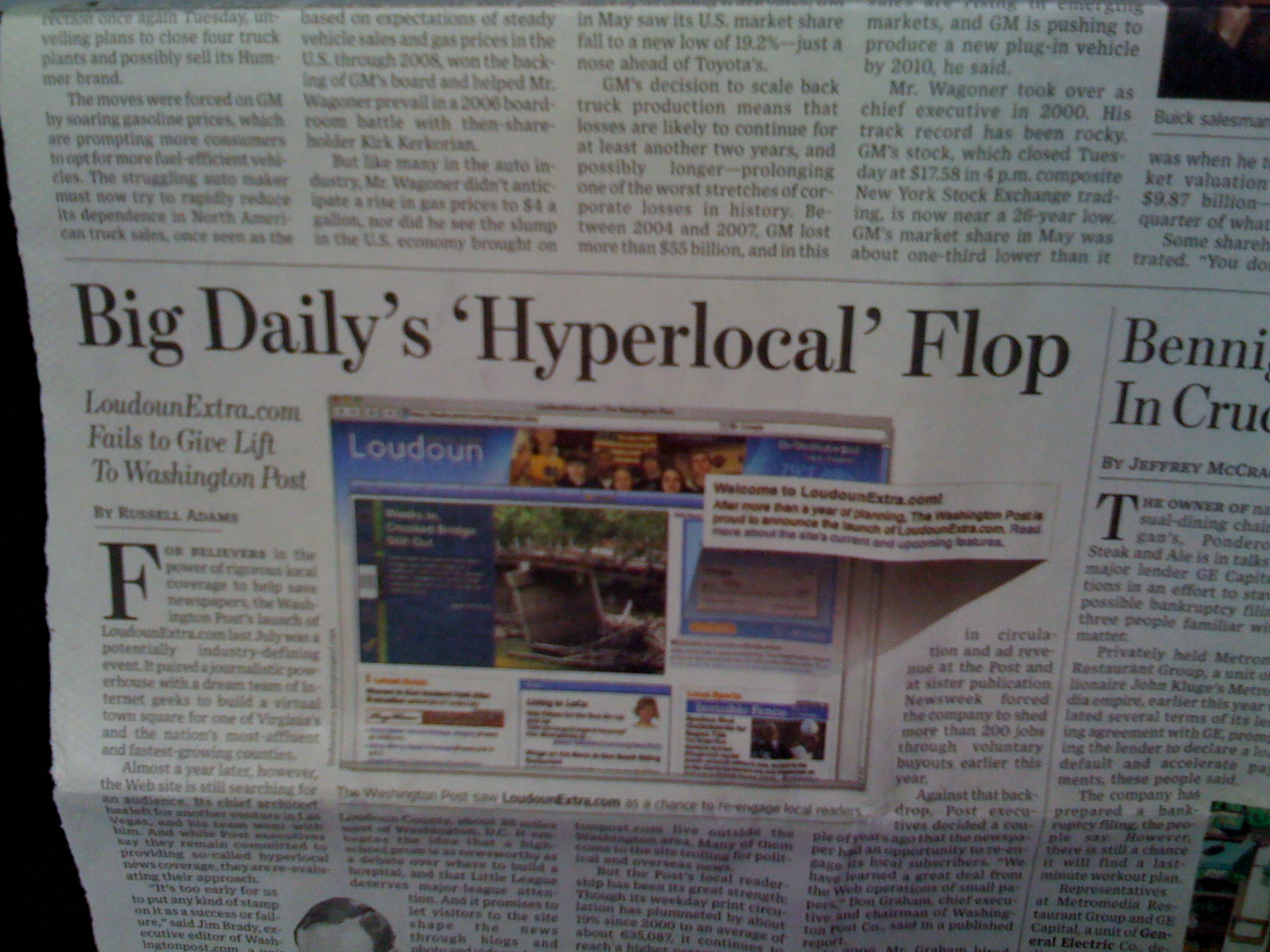
Fun and Games in the Washington Press Corps

You can order it from your independent bookstore, from Amazon.com, or from Bookbaby…


You can order it from your independent bookstore, from Amazon.com, or from Bookbaby…

Reading any newspaper is pretty much a two-dimensional, impersonal, top-down, one-way, and often stupefying experience. News reports are infuriatingly self-referential and incomplete. If they stir us up they don’t give us any place to go. Is this civic engagement? The endless stream of revelations and problems, celebrities and disasters, seems disconnected from our own personal choices and public solutions. Too often, newspaper readers feel like “passengers in the back seat of the car, howling at the driver,” as MIT Prof. William Uricchio once put it.
Now we, the public, can be the drivers in a three-D world, with enticing participatory media that are upending power relationships, changing the links between user emotion and action, creating and engaging communities, providing platforms for people to do things for each other, and allowing a new sense of public space. We get more information than we can use, including original documents and expert opinions. We can all be prod-users: publishing our news to the world through Twitter, Facebook, YouTube and a wealth of cellphone tools that allow us to collect, geotrack, prioritize, keep and spread stories, pictures, videos and images.
These tools enable people not just to have more fun, but to contribute to political campaigns, bear witness to official misconduct, arrange meet-ups to deal with local problems, crunch and visualize data, and write rough drafts of history for public resources like Wikipedia. If watching television disengaged people from community, as Harvard political scientist Robert Putnam asserted in his famous “Bowling Alone” study, new media technologies are drawing us together with extraordinary results.
We certainly can give up the ink and paper format. But we are suicidal idiots if we give up the professional service that newspapers provide. Newspaper journalism is the foundation of the watchdog news chain. The best newspaper journalists have our back and work on our behalf to sort out what’s true and publicly relevant, whether they or their advertisers like it or not. That is what they mean by “objectivity.”
Good independent journalism is hard to do. It costs money. It also requires a popular culture that supports unpopular questions and answers. It asks citizens to live in the real world and care about what is factually true. It requires a support structure based on something other than the voyeur pornography of violence, sex and celebrity.
At their best, newspapers provide what Alex Jones calls the “iron core” of news, the honest, time-consuming effort by paid professionals to hold the powerful accountable. Television and radio newscasts, Google news, Jon Stewart, Rush Limbaugh, and the people who run the world still depend to a large extent on the flow of facts and assertions vetted, organized and prioritized by newspaper journalists. Internet advertising without subscription fees cannot finance “iron core” journalism. So newspapers, even as they adapt to the web and cell phone platforms, are going bankrupt and journalists are losing their jobs.
Technology is not the sole culprit. Neither journalists nor the public have adequately differentiated good journalism from bad, nor defended newspapers when they have been under attack from self-interested ideologues. It has been increasingly hard for news organizations to resist offering simply whatever the public wants, instead of fighting for what the attentive citizen needs to know. Journalists too often have abandoned the qualities that made them both controversial and essential.
For new business models to work, journalists need to provide news services of unique value and promote their credo as effectively as the critics have attacked it. Media literacy training should be part of basic education for everyone, as power and responsibility for evaluating the news moves from the elite to the street. Technology alone didn’t destroy journalism, but a thoughtful use of digital and participatory media can help save it. We need to build and organize fan groups for real journalism and turn that support into sustenance.
The smartest digital entrepreneurs understand the continued importance of good journalism. Despite our information overload, vital news and information is deliberately hidden—as prize-winning newspaper and magazine exposes of corruption, torture, spying on citizens, and other issues, continue to teach us. We need someone with clout to hold propaganda creators accountable, while being accountable themselves. We know where to find these journalists if they mess up. In contrast, we can’t expect the evanescent and sometimes anonymous virtual digital folks who volunteer their pieces of information, to provide the consistent, influential flow of relevant, verified news that people require every day in a democracy.
We need a common picture of the real world that we cohabit today, if we are going to work together to build the future. Without professional journalists in the mix, we are tempted to travel only the streets we already know, mirroring ourselves with our media choices, rather than facing unwelcome facts. That is why we need to save newspapers—or at least the journalism they can provide. They help us demand the best from the powerful, and from ourselves.
Originally published in Newsday, December 2009.
…Phil Balboni debated a skeptical MIT student about news “objectivity” at Balboni’s new online GlobalPost venture.
…Harvard’s Shorenstein Center handed out prestigious Goldsmith investigative reporting prizes to mostly old media folks.
…And across the river, people started hearing the death rattle of the Boston Globe.
Even for the optimists, the media landscape remains a minefield of unresolved questions:
Is it enough that anyone can be in the driver’s seat now, creating and re-creating content, consuming whatever we like, and the hell with the rest of it?
Is news more authentic now?
Will my friends and colleagues spread the story to me if something relevant is out there?
Aren’t we glad to be washing our hands of “objectivity” and other myths?
Isn’t it glorious to be in the age of more information than we can possibly use?
Every day I am surrounded by people who have moved on from the mainstream news media with no regrets. The media didn’t tell us about the Bush Administration lies about weapons of mass destruction in Iraq. They didn’t warn us about the pending financial collapse. …it’s all much better now that we are getting our news from real people.
My bottom line has always been: how can people understand their real choices for shaping their own lives and communities? How can the flow of news actually promote personal and community agency? This is why the future of journalism and civic media are important to me.
Many of my truly smart civic media colleagues believe that crowd sourcing and individual participation will fill in the gaps and do a better job than the mainstream media have done with this, offering better watchdogging of political, economic and cultural institutions. I would love to see this. The projects that have worked—such as the Ft. Myers newspaper expose of a corrupt sewer contractor, and the Sunlight Foundation’s efforts at illuminating what is actually in the budgets and laws being passed, are wonderful examples of what is possible. But for cultural rather than technological reasons, they are far–-very, very far–from covering the waterfront. In Clay Shirky’s Here Comes Everybody, wonderful examples of civic media prowess are given but in each case, they seem to require the MSM megaphone at some point, to actually affect policy and change things on the ground.
Others note that news audiences haven’t really left MSM. They are flocking to the best MSM websites. It’s just about a broken business model. Yes, but… it’s about a shifting culture as well. If the best and brightest young folks don’t value agnostic, professional journalism, even a dozen new business models won’t work for long. I am waiting for a public relations campaign to argue the virtues of Kovach and Rosenstiel-style journalism (http://www.journalism.org/node/71), combined with a comprehensive news literacy curriculum at all levels, in all countries, that invites people to produce, consume and pay for public service news.
Fair, important, earth-shaking journalism is actually hard to do. It’s harder than simply repeating what anyone tells you, or selecting the facts that support your own biases. That is what all the fuss is about as newspapers around the country collapse and die. Look at the winners of the Pulitzers (http://www.pulitzer.org/awards/2009) and the Goldsmith awards. They have demonstrated real expertise at teasing out something important that others didn’t want them to know. Their legitimacy came from their honest broker status, rather than their witty personas. Some became expert at reading obscure documents, figuring out the proper context and meaning of them, and then using their institutional clout to make their findings matter. Some used new algorithms and other computational tools. Others, like my former Wall Street Journal beatmate Jane Mayer, insisted on verifiable evidence and persuaded people to trust her with what they knew about top-secret U.S. torture policy (http://www.harpers.org/archive/2008/07/hbc-90003234.) This work takes not only skill, but time and, alas, money.
A feature of the new participatory ad hoc media is that people can participate anonymously and briefly, and then go away. This can capture moments of expertise that would have been wasted before. But no one can criticize them for letting down the public or making things up. They can just click away from that activity whenever it grows tiresome to them. So our challenge is not just how do you obtain the journalism you need without a professional group of experts being paid to do this, but also, how do you organize amateurs who wish to participate sporadically with acts of journalism, in a way that has value both for them and the publics they wish to serve? Will these mechanisms provide adequate information on which to base critical policy and voting decisions?
To be sure, what has called itself journalism has too often been a hack job, a pile of missed clues and mistaken identities. It’s not just about messing up the facts. It’s about misunderstanding what they mean. Stupid journalism is just like stupid anything else. It’s demonstrably bad and people should expose or ignore it.
It’s not about the platform, even though too many MSM moguls have lost their shirts by responding as if it is. Many fine journalists are net-based and have never set foot inside an MSM organization. Joshua Micah Marshall is I.F. Stone2.0 (http://www.talkingpointsmemo.com/). I see exciting new civic media possibilities on the horizon. Twitter is dazzling, as a headline service and a conversation. But I need more than Twitter, YouTube and my Facebook social network to understand this complicated world.
Phil Balboni’s talk at MIT inspired another installment in the debate about objectivity. Students seemed uniformly skeptical when he advocated objective news. Objectivity means less transparency. Why hide your inevitable biases? Why would anybody prefer a journalist who won’t tell you what she thinks about what she’s witnessing?
“Objectivity” was impossible, of course, but the effort to achieve it was the journalist’s shield against the influence of the advertisers, political bosses and owners. It required real discipline. It was an act of idealism and selflessness, an effort to step back and honestly present what one witnessed as truthfully as possible, even if it didn’t reinforce one’s own beliefs or the politician’s or advertiser’s wishes. For example, there was the day my colleague and I had a lead story in the Wall Street Journal documenting how everyone around President Reagan—including Mrs. Reagan, Vice President Bush and virtually the entire cabinet—thought Attorney Edwin Meese should resign. But theJournal’s editorial page, on the same day, thundered that the only people who wanted Meese to resign were the liberal critics of the Reagan Administration.
My belief in the value of agnostic journalism—to offer facts on all sides of the issue, and trust the ability of my readers to connect the dots—was tested when I wrote about people like Black Muslim leader Louis Farrakhan and conservative prankster Terry Dolan. I forced myself to be open-minded, to understand and present what they thought of themselves, and what their admirers as well as their critics saw in them, instead of simply lining up my own objections. Now newsmakers can offer themselves to the world through their own platforms, and they don’t need journalists like me to paint their portraits. But are we better informed now, better protected against bias because we don’t believe in trying for objectivity anymore? Is the personal lens always the best model for every news situation?
Roger Ailes—the GOP media guru who now runs Fox news—once told the students in a class I was teaching at Harvard that journalists got up in the morning with a goal of tearing down his GOP candidates. Did he really believe that? That wasn’t what we thought we were trying to do. We asked unpopular questions in order to hold the powerful accountable. A few months before Ailes made his comment, I had been a Wall Street Journal reporter questioning Ailes’ client, GOP Vice Presidential candidate Dan Quayle in a “press availability” in Huntington, Indiana. Quayle complained that I was unpatriotic to question his finding a personal safe haven in the U.S. National Guard during the Vietnam War, while others were being drafted and dying in a war he vigorously supported. I took more heat than Quayle did for the exchange, which was captured live on CNN. Critics said I seemed disrespectful and “biased” against Quayle. I thought it was our job to ask uncomfortable questions, not to seek accolades as celebrity pundits in a patriotism contest.
But without cultural support for that kind of insolence, journalists have made popularity their Faustian bargain with the bottom line. Bloviators are hired on radio and cable TV for their ratings rather than their honesty or wisdom, and a news story’s spreadable popularity (as the most emailed or highest ranked on sites like Digg) establishes the journalist’s value to sponsors. Few noticed untilafter Hurricane Katrina, the faltering of the Iraq War and the economic meltdown, that the unpopular questions were not being asked effectively beforethe crisis. This has always been a challenge, of course, but it is more so when the paying customers prefer faith over facts.
It’s been an extraordinary privilege to serve for 18 months as research director at MIT’s Center for Future Civic Media. The work has been highly experimental, creative and public-spirited. This is a wonderful place to invent communication technologies and practices that promote civic engagement in local settings. Some of it is already a lot more promising than old journalism ever was. We need to apply these new media affordances for civic good. How can people build cultural practices that use communication technologies to best advantage personal agency and healthy communities, all around the world? Let’s all keep working on that, even as we see the terrible and stirring pictures and words coming out of Iran, Gaza, and other crisis areas.
Part of the original C4FCM team is breaking up, as Henry Jenkins moves on to USC, and outreach director Ingeborg Endter and I depart MIT. But the Knight Foundation grant work is in excellent hands with two of the original creators of the Center, C4FCM Director and Principal Investigator Chris Csikszentmihalyi, and Associate Director and Principal Investigator Mitchel Resnick, as well as C4FCM’s new administrator, Sarah Wolozin.
As I leave to take up a new life in Budapest, I will be working on a book, and updating my monograph, “Tabloids, Talk Radio and the Future of News,” (Annenberg Washington Program, 1994), which predicted the demise of journalism and started my thinking about technology’s impact on news. Please keep checking in with me through my website, www.ellenhume.com